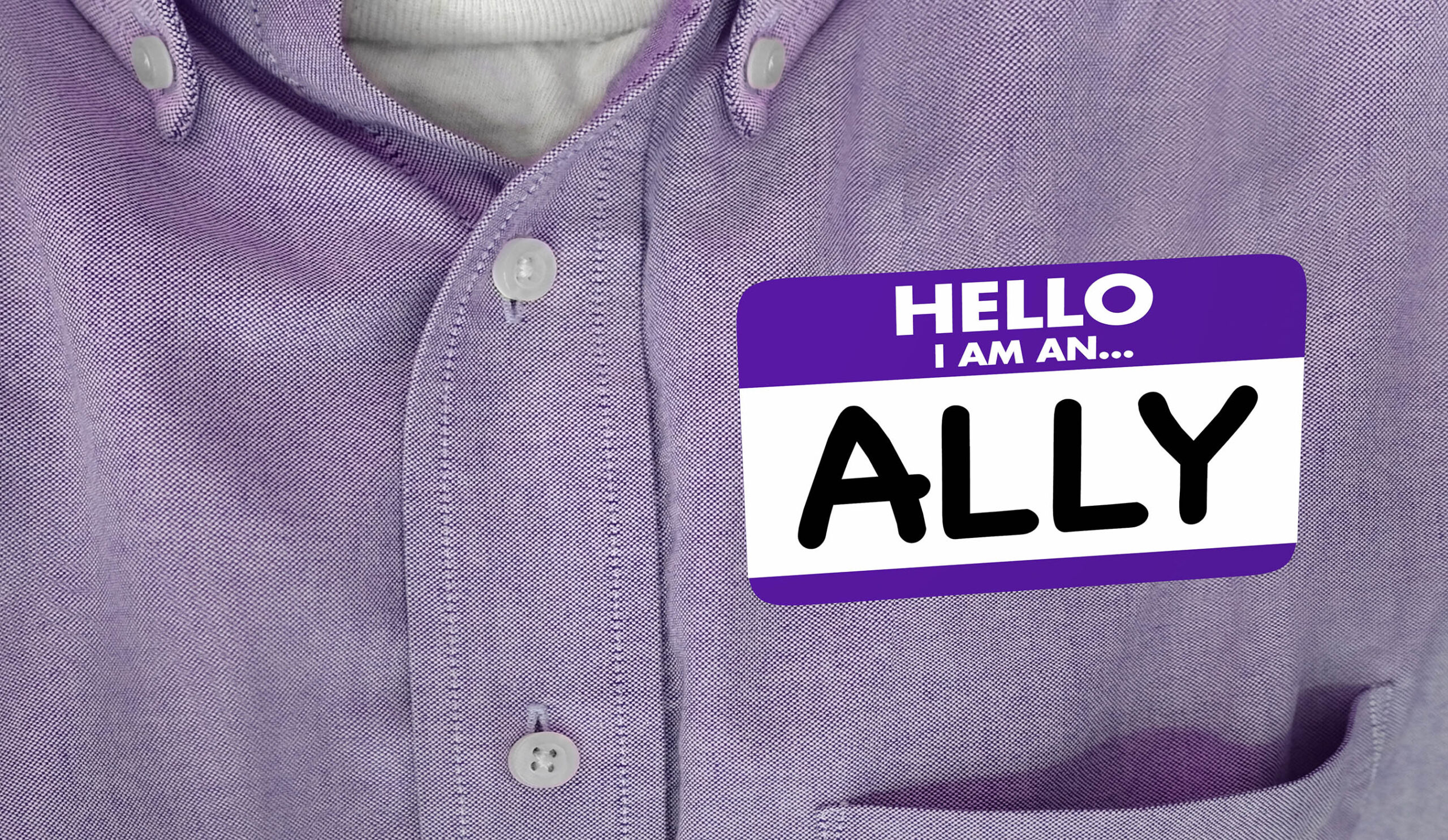Increased focus on allyship towards communities of color, and the Black community in particular, has been on the rise since the 2020 “racial reckoning” catalyzed by the deaths of George Floyd, Ahmaud Arbery, and Breonna Taylor. Traditionally, the concept of allyship has been prevalent in discussions about supporting members of the LGBTQIA+ community and other underrepresented groups. However, there are several problems with allyship that are often danced around and need to be addressed, especially by those who are serious about supporting these various groups.
1. ALLYSHIP IS HARD
Underrepresented and marginalized communities have been impacted by bias and discrimination and want equity, inclusion, and belonging in their workspaces. Allyship is needed to help right wrongs, highlight inequities, provide opportunities, and to foster inclusive environments.
Being effective on your allyship journey requires a lot of effort. Becoming an ally requires self-education, self-awareness, and the understanding that you have to address bias and provide access to spaces and power that you possess both individually and within institutions.
This is uncomfortable work, but discomfort is often required to create impactful change. My therapist often reminds me that “Growth begins where comfort ends”. If your notion of allyship is only being an ally when it is comfortable or only done in a performative manner with buttons, t-shirts, and social media posts, then you still have a lot of work to do if you want to be an effective ally.
2. ALLYSHIP REQUIRES BRAVERY
Becoming an ally is not an easy journey; it can require confrontation, taking risks and embodying bravery. What does such bravery look like? As an example, if there is an organizational commitment to inclusivity and someone who is an influencer, leader or rainmaker says something that is outside of those lines, there should be a shared commitment to speaking up and an expectation of being supported as an ally. There should be no fear of being negatively impacted, ostracized or facing retaliation due to standing up as an ally.
3. ALLYSHIP ISN’T ONE SIZE FITS ALL
Many of us who want diverse and inclusive work cultures are frustrated about the existence of situations in which allyship is needed, but we are also tired. A balance is needed in terms of how allyship is leveraged or fostered within different cultures.
It can also be hard to know when and how to modulate your allyship efforts for an individual or group that you want to align with, and sometimes even that can be inconsistent. For example, if someone is not being called upon or is being ignored within a space, you, as someone who wants to be an ally in that situation, may want to say to the offender: “I’ve noticed that you have not called on X. I think that they have something to say.”
However, depending on the situation or context, there may be times when someone does want/need an ally to speak up for them. Other times that person may be comfortable advocating for themselves, and only want their ally/ies to offer their background support. That is why allyship, like inclusion, is a continuing conversation. It is not one size fits all.
4. ALLYSHIP CAN BE IMPACTED BY BIAS
It is important to understand that even though we have good intentions, our biases still impact the way in which we deliver our allyship driven behavior.
For example, I might say that I want to have a more inclusive workplace, and am going to start to be an ally as much as I can, by speaking up for people, by providing them with opportunities when they are not in the room, or by leveraging my access to influencers in ways they cannot.
One of the challenges with this, and something that I’m often asked is – how do you decide who to ally for and how frequently? Oftentimes that question can come from an understanding that all allyship is not equal, and that our lenses are often still impacted by our biases. For example, you may be only allying with women who went to your law school, or members of the LGBTQIA+ community who also share your racial identity.
Keep in mind that everyone has a sphere of influence. No matter who you are or what your sphere of influence is, the key is to be expansive in your awareness of injustice, understanding that you can’t solve everything all at once. Even if you are a member of an underrepresented group, you can still ally to support others. One of the best ways to promote your allyship is to communicate that you are on the journey.
Share with others that you are trying to learn and do better in different areas. Acknowledge that there are issues that need to be addressed culturally. Explain that allyship requires people with privilege and power to be introspective and to understand different communities’ experiences. Continue to call out bias and injustice, encourage others to step up as allies, and actively try to address issues and provide continued support.
5. ALLYSHIP REQUIRES STAMINA
Like any other habit or behavior change, with allyship there can be initial momentum, followed by an acknowledgement of the difficulty, which can lead to a slowdown or regression. This is why reconfirmation, additional commitment, and consistency is what solidifies the allyship journey, especially when you consider the problems mentioned above. Continued learning to stay aware of issues impacting marginalized groups, listening to members of these communities and being mindful of taking up too much space in interactions are key actions to embody. It is also important to incorporate self-empathy, rest, and self-care strategies to support your allyship journey.
THE SOLUTION TO ALLYSHIP PROBLEMS
My hope is that you understand that within all these problems, there are also potential solutions. The biggest solution that I can suggest to you is to not stop.
Even when it gets difficult, understand that your actions can have ripple effects; your intention and impactful allyship can shift individual experiences and organizational cultures. This is especially true when you share your allyship journey experiences – not to be performative or get kudos – but to remind others of your “why” and that, as Martin Luther King, Jr. said, “Injustice anywhere is a threat to justice everywhere.”
May your actions and impactful allyship continue to show the need to advance our cultures – institutionally and systemically – as much as you can, using the influence that you have. Remember, ally is not simply a title you give yourself. Your informed, authentic, and consistent actions will result in you being referred to as an ally by those who experience or witness your impact.
All Rights Reserved PGE Consulting Group LLC 2022 | Reprint permission requests to [email protected]





